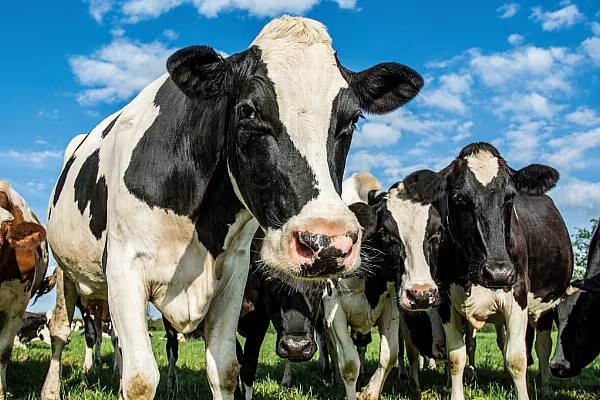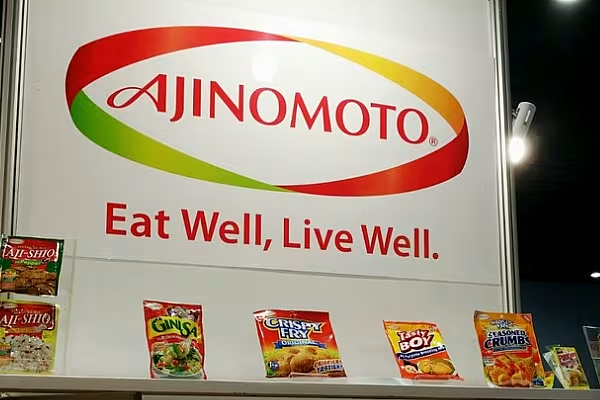Thriving in turbulent times requires openness towards working together, building resilience into your operations, and realising your limitations. That’s according to a recent report by EY and the Consumer Goods Forum – Pursuit of harmony in turmoil: working together to make a difference – which interviewed 17 consumer industry leaders, including the CEOs of the Coca-Cola Company, Ahold Delhaize, Mondelēz International, Ajinomoto and the Kellogg Company.
The report highlights the stark realities facing retail and consumer goods firms during this time of ‘polycrisis’, as well as exploring how solutions can be developed through collective, creative action.
At the Consumer Goods Forum Global Summit in Kyoto, ESM editor Stephen Wynne-Jones sat down with Kristina Rogers, EY global consumer leader, to discuss some of the main talking points of the report, as well as how periods of volatility and frugality can be an ‘engine room’ for driving positive change.
Read More: Industry CEOs Tackle Crises By Working Together, Study Finds
Talking Points
In compiling the report, Rogers had the opportunity to speak one on one with several chief executives about issues close to their hearts, noting that one recurring theme was the increase in the day-today challenges that they now face.
“CEOs now find themselves fighting multiple battles simultaneously,” she explains. “There’s something happening in this place, and in that place, and they have to figure out how to manage it all.”
Balancing concerns such as inflation, the cost of living, geopolitical conflict, increased energy prices and the climate emergency can be overwhelming, particularly as companies strive to avoid making trade-offs – no wonder, therefore, that the word resilience came up in almost every single interview undertaken for the report.
“You have to be fighting the fires, but you also have to have a long-term vision for the organisation,” Rogers says of the challenges facing the CEO of today. “What came up all the time was resiliency. We need flexible, resilient, agile organisations that can roll with the punches, so they’re not like a deer in the headlights when the next challenge comes up.
“These are companies that are flexible enough to maintain their current agenda, but also to be able to pivot – to have an operating model and organisational structure that allows for much more flexibility.”
Learning From The Pandemic
While no businesses claim to have all the answers, those that built flexibility into their operations during the COVID pandemic are best prepared to take these learnings and apply them to the myriad of crises currently overlapping each other, Rogers suggests.
“There were some CPG companies who were very able to pivot to D2C, for example, reasonably quickly, even though that was never their model before, so I think there’s probably some learnings to be taken out of that, in that it was a pretty big disruption, and there were some that were prepared and some that were not.”
The Right People
At the same time, any CEO is only as good as his/her next quarterly financial statement – with recent history littered with examples of progressively minded executives who were forced to fall on their swords as a result of disgruntled shareholders. As is explored in the report, an important trait of an industry leader is to cultivate a mindset across an organisation into which everyone can buy, underlining the importance of having the right team in place.
“This is where you need to get into [a] discussion about attracting the right talent,” says Rogers. “If you want to be the kind of organisation who can handle the stress of these constant crises and still keep an eye on the future and keep the day-to-day, that might require a different kind of person.
“Some of the conversations I had were around are we an attractive-enough business to bring in these kind of people? How can we attract people like that – or is that a talent that we need to bring in, or can it be trained? In other words, do we have the right skill set for the type of organisation we want to become?”
EY Future Consumer Index
The most recent edition of the EY Future Consumer Index examined some of the key pressures facing consumers. Understandably, cost and price are top of mind, with 74% concerned about living costs, 56% worried about their ability to afford household necessities, and 54% stating that they expect living costs to worsen over the next six months.
At the same time, consumers are being affected by concerns beyond price. Some 70% expect companies and organisations to drive a positive social and environmental agenda, while 63% are reappraising how they spend time on the things that they value most. Increased interest in sustainability and frugal living means that many are opting for experiences, rather than owning more things.
In an era in which the consumer is having more and more influence over how retailers and CPG firms operate – ”at the heart of all decision-making,” according to Lipton Teas and Infusions CEO Nathalie Roos – these factors haven’t gone unnoticed by industry leaders.
“Consumers are part of the game now,” says EY's Rogers. “It’s not the same one-directional traffic, where they learn about a product because of an ad, and then see the product on the shelf and buy it. That’s long gone. As a consumer, they are part of the discussion. They are part of the equation.”
This, in turn, is a driving force for collaboration and partnerships – rather than “hoarding information to gain a competitive advantage, thinking of data as a shared asset,” according to Rogers.
While “positive” steps have been made in terms of generating partnerships among CPG firms, she notes, there is still some work to do to foster collaboration between manufacturers and retailers, given the constant discussions on trade terms, promotions, and so forth.
“There’s this constant battle about who’s splitting up the pie,” she says, “but I think there are advantages to finding ways of thinking about, how do we actually work together?”
Read More: Affordability The Top Concern For More Than A Third Of Consumers: EY
The Shopper Mindset
Brand owners also need to ensure that they are on the same page as their shoppers. With many struggling to pay their food bills, headlines about record profits and double-digit sales growth are likely to be given short shrift by the typical shopper – and that’s to say nothing of issues like shrinkflation. Is it any wonder, therefore, that shoppers are switching to private label in large numbers?
Better engagement can be a valuable ally in ensuring that brands retain their share of voice in the customer’s mindset, but, again, this needs to be done on the latter’s terms.
“Shoppers value personalised experiences that make things easier and offer tangible benefits,” says Rogers. “They are now more comfortable with the idea that companies can gather information about them, as long as it proves valuable to them. They don’t want their data to be monetised solely for the company’s benefit.
“Instead, they seek a shared agreement where the company can truly understand them and demonstrate that understanding.”
Read More: How Can Consumer Companies Help Deliver A Sustainable Future?
Reinventing Leadership
As the EY and CGF report states, while the short-term challenges are manifold, true leaders should not lose sight of the bigger prize – delivering long-term value to their businesses, to consumers, and to the planet. Collaboration may not always be possible, but there is generally a substantial middle ground where collective action and cooperation can flourish, to the benefit of all involved.
“Would you like to be a CEO at the moment?” Rogers asks. “Frankly, if you think about the polycrisis and the big thorny issues that they are responsible for figuring out, it’s a big job. It’s not the same job as it was 25 years ago. Today’s CEO is being asked by all sorts of stakeholders to fix things, to make this or that right.
“I think it’s so strategically important to really understand the consumer in the way they want to be understood. That sometimes takes a lot of muscle in a particular organisation. It’s a very challenging role these days.”
Read the report, Pursuit of harmony in turmoil: working together to make a difference, by clicking here.
© 2023 European Supermarket Magazine – your source for the latest A-brand news. Article by Stephen Wynne-Jones. Image created via 123rf.com AI Image Generator. Click subscribe to sign up to ESM: European Supermarket Magazine.













